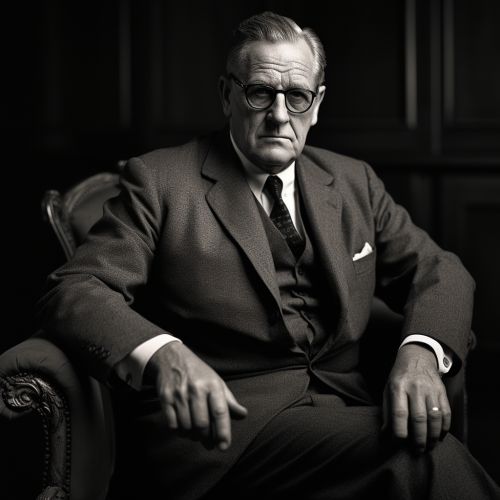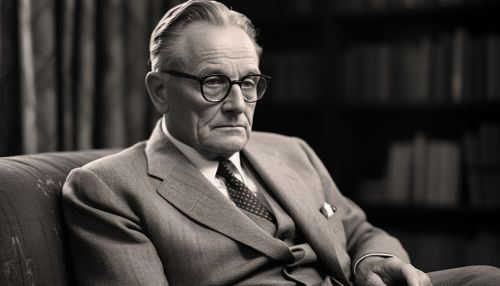Charles Spearman
Early Life and Education
Charles Edward Spearman was born on September 10, 1863, in London, England. He was the son of a wine merchant and was educated at home until the age of 20. He then attended Leipzig and Heidelberg in Germany, where he studied philosophy and psychology. He later moved to the University of London, where he obtained his doctorate in experimental psychology under the supervision of James Sully in 1906.
Career and Contributions to Psychology
Spearman's career in psychology began at the University of London, where he served as a reader in experimental psychology from 1907 to 1911. In 1911, he was appointed as a professor of mind and logic at University College, where he remained until his retirement in 1931.
Spearman is perhaps best known for his work in statistics and his development of the factor analysis technique. This technique, which is still widely used in psychology and social sciences today, allows researchers to identify underlying factors that explain the pattern of correlations among a set of observed variables.
In addition to his work on factor analysis, Spearman also made significant contributions to the field of intelligence testing. He is credited with the development of the concept of general intelligence, often referred to as the 'g factor'. Spearman proposed that this 'g factor' represented a common factor of intelligence that contributed to performance on all cognitive tasks.
Spearman's work on intelligence testing has had a profound impact on the field of psychology and has influenced the development of many modern intelligence tests. His theories have also sparked much debate and controversy, particularly in relation to the nature of intelligence and the extent to which it can be accurately measured.
Later Life and Legacy
Spearman retired from University College London in 1931 and spent the remainder of his life in retirement in London. He passed away on September 17, 1945.
Spearman's legacy in the field of psychology is significant. His work on factor analysis and intelligence testing has had a lasting impact and continues to influence research in these areas today. Despite the controversy surrounding some of his theories, Spearman's contributions to the field of psychology are widely recognized and respected.


